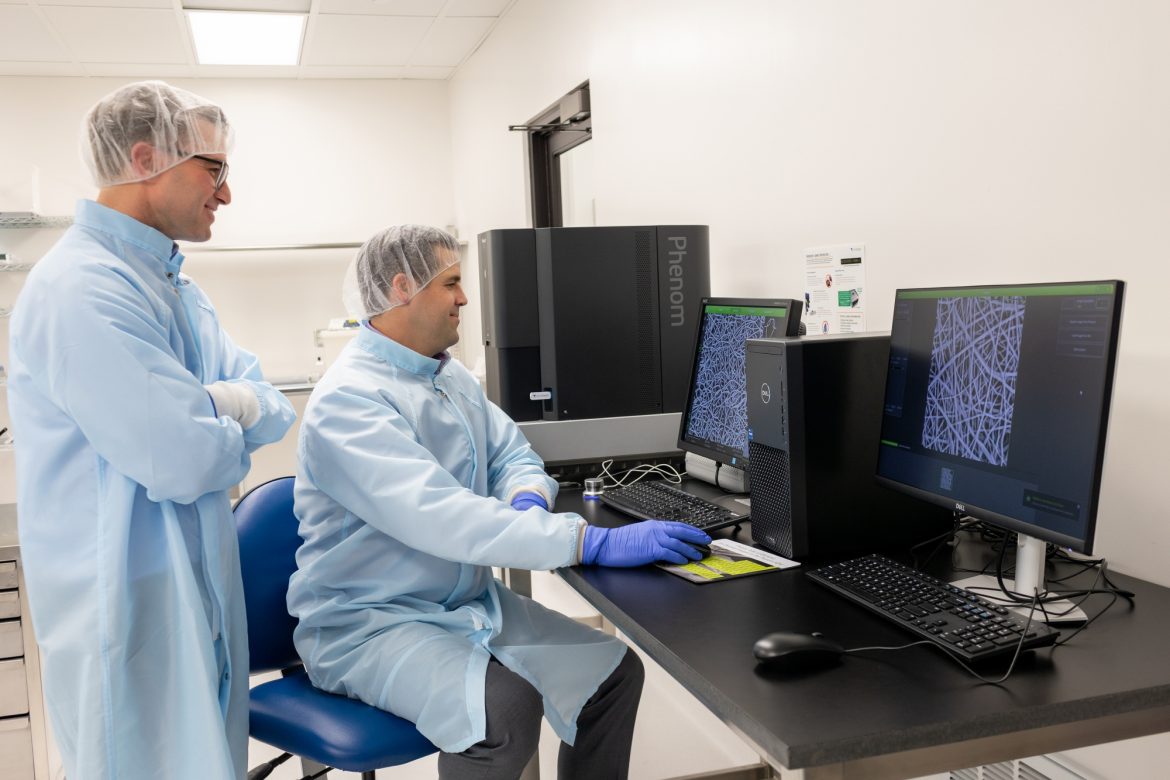
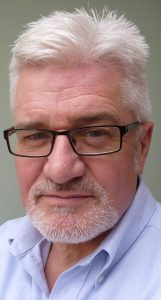
SOME big names have made great strides and disrupted key global industry sectors with their technology.
Google and the Internet, Apple and the iPhone, Tesla and the electric car, and SpaceX and Blue Origin – leading a new space race – are just some of those tech transformers.
But where are the long-awaited major advances in medical innovation, especially since completion of the Human Genome Project in 2003 – expected to herald so many breakthroughs, cures, and greater longevity?
They are coming, but not necessarily from established names in medical technology. The would-be disruptors are often smaller fast-moving startups taking whole new approaches to issues that have constrained the health sector for decades.
One such company is Verseon, a Silicon Valley neighbour to the likes of Tesla and Apple, whose top team helped develop the streaming tech that now dominates TV viewing.
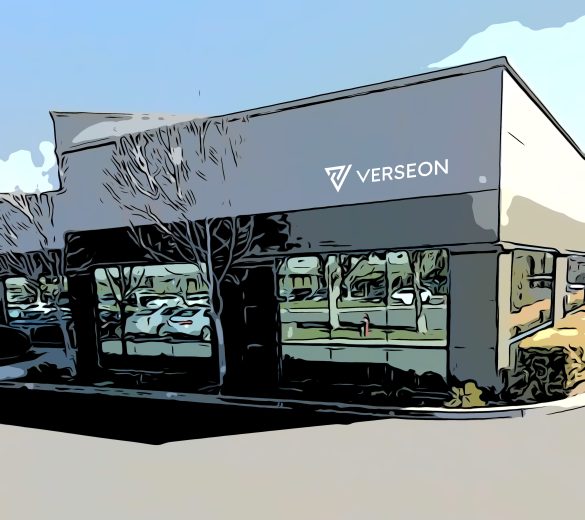
Founding Verseon in 2002, that team has devoted the past decade to building a transformational drug discovery platform for conquering long term killers like cancer and heart disease, and that scourge of recent times – coronaviruses.
Vaccinations may have ‘tamed’ the COVID beast, but even mild infection can leave a sinister ‘graffiti’ across our bodies according to new research from Cambridge University, Imperial College, London, and others.
This can age vital organs and systems – including the heart, lung, kidneys, skin, and brain – by up to 20 years, weaken immune response, and contribute to other health issues.
Therefore, vaccines are not the best answer, says Verseon, as the virus will simply mutate and re-infect in its new form. Instead, Verseon is developing antiviral drugs to stop the virus ever gaining a foothold and mutating in our bodies.
Pharmaceutical giant, Pfizer has an anti-coronavirus drug, Paxlovid. But this has known side effects (www.nhs.uk/medicines/paxlovid/side-effects-of-paxlovid/) and is simply based on repurposing a drug candidate under development since 2002 for another virus. Indeed, many experts believe COVID may already be mutating its way around Paxlovid.
And this highlights the problem for so-called ‘Big Pharma’ concerns like Pfizer, which rely on a 100-year-old trial and error drug discovery method that has lately slashed the number of genuinely novel drug developments and returns on R&D investments.
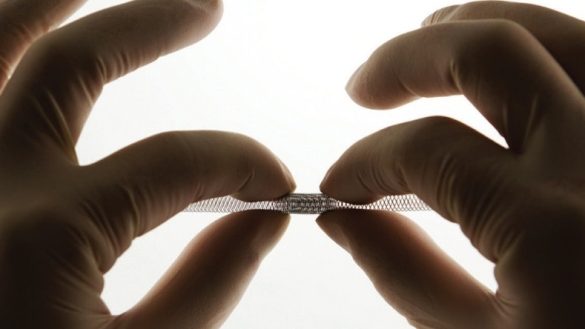
Big Pharma has a relatively small number of drug compounds to work with using this approach; one of the larger players may hold a little over two million, while the industry globally probably tests around seven to ten million.
That might sound a lot, but the number of potential drug molecules is actually around billion trillion trillion, so the pharma industry is constantly ‘fishing’ for answers in a muddy roadside puddle, when it could be exploring an ocean of new drug molecules likely to revolutionize drug discovery and healthcare.
To add further context, of the 10,000 plus known human diseases, the established trial-and-error model can barely tackle 500, and many current drugs have nasty side effects that create secondary problems.
Like many, Verseon saw that AI and computer power can make the breakthrough, but also recognized that it needed a platform based on fundamental science and masses of data to ‘go fishing’ in the ocean instead of that muddy puddle.
Verseon’s drug discovery platform has opened endless possibilities and it already has 16 drug candidates within its eight drug programmes, to tackle major killers like cancer and heart disease and has done this 50 times faster than anyone else. The three most advanced candidates alone have an addressable market of US $200 billion a year, says Verseon.
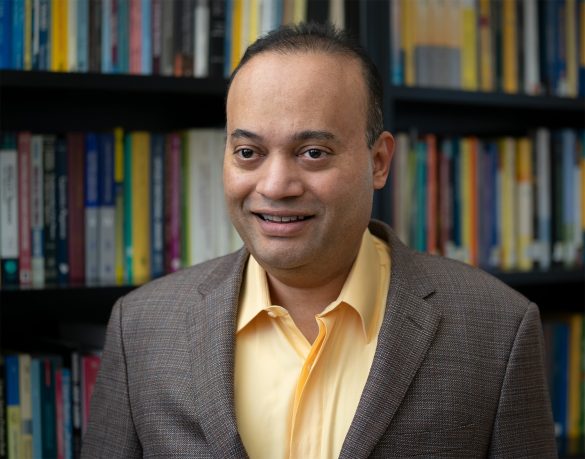
Leading industry experts agree. Former Pfizer SVP of R&D Strategy Robert Karr said: “Verseon’s disruptive platform changes how drugs can be discovered and developed, and the company is poised to make a dramatic impact on modern medicine.”
And one of the world’s leading cardiologists, John Deanfield, Professor of Cardiology at University College, London said: “Verseon’s platelet-sparing anticoagulants…represent an exciting ‘precision medicine’ opportunity for the treatment of a large population of cardiovascular disease patients.”
Meanwhile, in another healthcare sector where major players have tried and failed, a serial Medtech entrepreneur and his team are developing a small device that could seriously impact mankind’s No.1 killer, cardiovascular disease, which takes 20 million people globally every year.
This death toll would soar higher but for a million heart bypass surgeries annually, yet each of these procedures comes with a cost: the need to ‘harvest’ blood vessels from the patient’s own legs, arms, and chest to create the bypass vessels.
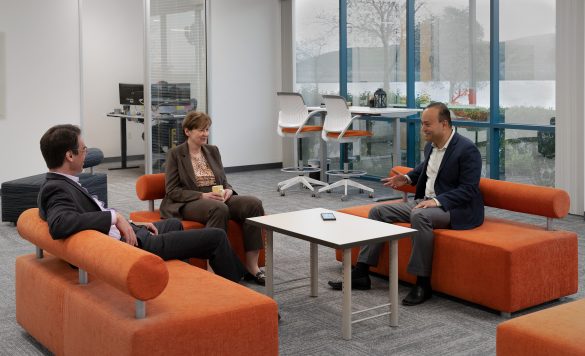
It is a painful and intrusive surgery inflicted on an already sick heart patient and lengthens recovery time after a physically demanding three-six hour bypass operation.
There is also a 20-30% bypass failure rate during the first year and a 50 per cent failure after five years. But a pioneering Minneapolis-based US company, Medical 21, aims to eliminate harvesting and the failure rate, with an artificial graft for bypass surgery.
The market size and global need for innovation in the cardiac bypass surgery procedure is calculated at $8-$10 billion. With nearly a million procedures performed each year, there is a call for over three million grafts per year.
The graft is biocompatible – designed to assimilate itself into the patient’s body – and would allow heart bypass surgery for many people currently excluded due to harvesting issues: heart patients with amputations, severe diabetes, or varicose veins.
Medical 21 Founder and CEO Manny Villafaña, PhDSc has already positively impacted over 15 million people, through his previous cardiovascular innovation companies – notably including a radical new pacemaker and a heart valve that dramatically reduces blood clots.
Founded in 2016, Medical 21 is Dr Villafaña’s latest company and he and his team – including medtech engineers, heart surgeons, researchers, and key figures from world leading institutions – believe its artificial heart graft will be an even greater achievement.
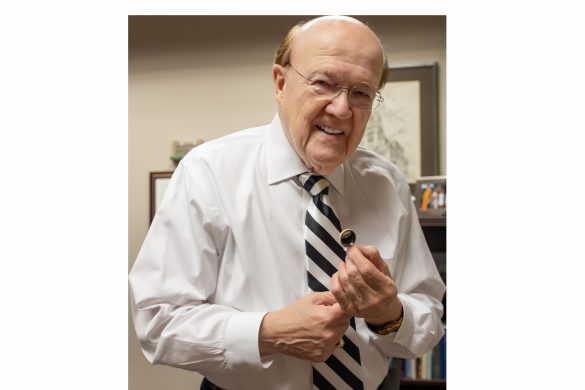
There’s no doubting Verseon or Medical21’s ambitions, as both have an impressive track record of innovation, having delivered close to $60bn in shareholder value from previous ventures.
So, like Elon Musk, could these companies be about to do it all again and deliver better outcomes for global health?
